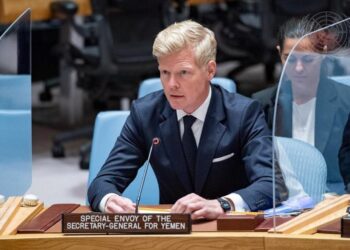The BRICS group, composed of Brazil, Russia, India, China and South Africa, has recently announced its intention to expand its membership by inviting six more countries, four of which are from the Middle East and North Africa (MENA) region. The move is seen as a sign of the group’s ambition to challenge the western-dominated world order and increase its influence in the strategic and volatile region.
The six countries that received the invitations are Saudi Arabia, Iran, Egypt, the United Arab Emirates (UAE), Argentina and Ethiopia. They are expected to join the group as full members from January 1, 2024, according to South African President Cyril Ramaphosa, who made the announcement at the end of the BRICS summit in South Africa on Thursday.
The BRICS group was formed in 2009 as a platform for cooperation and dialogue among emerging economies that share common interests and challenges. The group accounts for about 42% of the world’s population, 23% of global GDP and 17% of global trade. It also has its own development bank, the New Development Bank (NDB), which provides financing for infrastructure and sustainable development projects in BRICS and other developing countries.
The group’s decision to invite more members reflects its desire to diversify its composition and enhance its global clout. The selection of the invitees was based on their geopolitical importance and not ideology, according to Brazil’s President Luiz Inacio Lula da Silva. The inclusion of MENA countries, in particular, is seen as a strategic move to gain more leverage in a region that is vital for energy security, trade and stability.
Saudi Arabia and Iran are two of the largest oil producers and rivals in the region, with competing interests and influence in countries such as Iraq, Syria, Yemen and Lebanon. Egypt is the most populous Arab country and a key player in the Arab-Israeli conflict and the Nile basin. The UAE is a regional hub for trade, finance and tourism, as well as a close ally of the United States. All four countries have also been involved in various conflicts and crises in the region, such as the Saudi-led intervention in Yemen, the Iran nuclear deal, the Arab Spring uprisings and the Gulf crisis.
By inviting these countries to join BRICS, the group is signaling its willingness to engage with them on various issues and offer them an alternative platform for cooperation and development. The group is also seeking to balance its relations with the West, which has traditionally dominated the region’s affairs through alliances, interventions and sanctions. The group’s members have often criticized the West for its unilateral actions and interference in other countries’ internal matters.
Motivations
The invitees have different motivations and expectations for joining BRICS. Saudi Arabia and the UAE are likely to use their membership as a way to balance their ties with the United States and China, both of which are important partners for them. They may also seek to benefit from the group’s economic opportunities and development projects. Iran and Egypt are expected to accept their invitations as well, hoping to gain more financial support and political recognition from the group. Iran may also see BRICS as a way to counter US sanctions and isolation. However, these countries may also face some challenges and dilemmas in joining BRICS, such as reconciling their differences with each other and with some of the existing members, as well as maintaining their existing alliances and commitments.
The expansion of BRICS is likely to have significant implications for the Middle East and the world order. The group may become a more influential actor in regional affairs, offering a different perspective and approach than the West. The group may also provide more opportunities for dialogue and cooperation among regional actors, as well as between them and other emerging powers. However, the group may also face some difficulties and limitations in achieving its goals, such as managing its internal diversity and cohesion, resolving its conflicts with other actors, and delivering on its promises.







